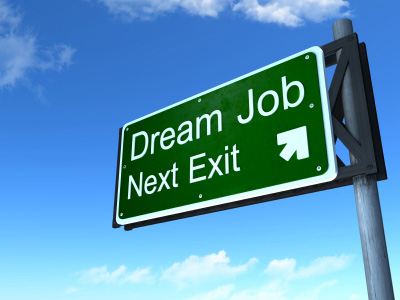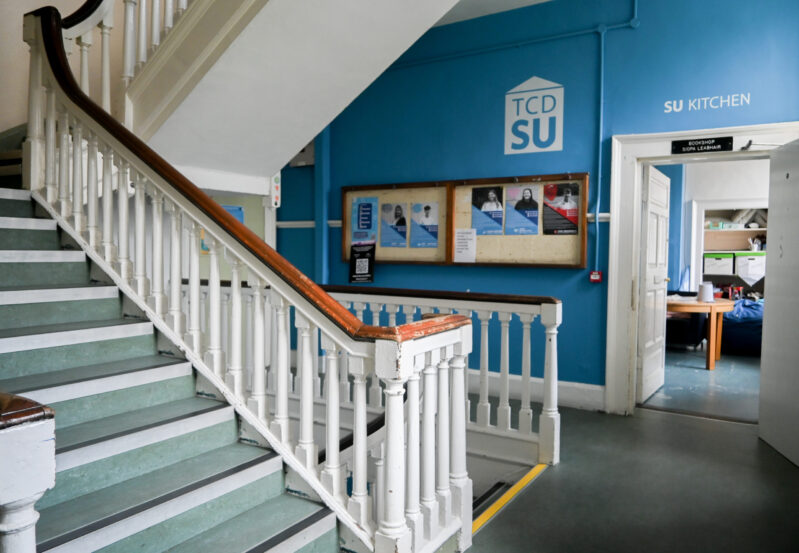“What do you want to be when you grow up?” is a deceivingly simple question that I’m sure we have all been asked at some stage or another by either a parent, teacher or even a friend. If you’re anything like me you probably blurted out whatever came to mind (within reason) and went along with the string of questions that inevitably followed. I don’t think it’s an exaggeration to say that, for the majority of people, this idea of needing to know what career path to take can be a daunting one that, even with hours of consideration, there is no clear-cut answer to. Even being three years into a four-year degree, I, along with others I know are still indecisive for a plethora of reasons, but God forbid one is ever honest and answers “I don’t know” to the question about what job they want to have — because somehow that is even worse than lying. With this angst about the future, the Trinity Careers Fair seemed to be the perfect place to get some inspiration for potential employment opportunities. However, I was quite shocked at what I saw at the stands of well-known business and finance companies known on a fairly national — if not global scale, and it made me think about the fixation of picking a career, along with the expectations that follow from what you choose.
As the stands were swarmed with people eager to speak to the representatives of certain firms, a strange pattern emerged. There was a good balance of both men and women queueing up at each stall, but time and time again the representatives would skip over the women and talk to the men first — more specifically, white men. The first time I noticed this I thought it was odd, the second time, it was a coincidence, but by the third time this had happened, it was purely frustrating. Not to air out the names of these particular businesses, but the ones tending to do this were those with mainly male representatives and were more for the accounting and taxation positions. This filled my brain with thoughts disputing the idea that we have (supposedly) progressed as a nation to allow women to feel as welcome in the male-dominated areas of finance and STEM as they do in fields where work is more based on connections with people like human resources, nursing and being a receptionist. It is scary the statistics that prove that women in the workplace do not have the same access to resources as men. The McKinsey and Company Women in the Workplace Report (2023) admits the “slow progress for women at the manager and director levels — representation has grown only three or four percentage points” higher than it used to be, which is practically nothing. Yet, it is fascinating to see the male biases of companies displaying themselves so blatantly in something like a careers fair. Sadly, this is only a minor representation of how these companies work. Most of these events want to find people to hire as much as the student wants to be taken on board by them. Hence, it is more advertisement for the company than let on as it is being targeted to students and graduates.
To promote their firms, it appeared companies took young members, who are successful at what they do having only been there for a few years since their graduation, and propped them up at these stands so they seem approachable for those of us close in age to them. But, with the inequality in numbers of men to women, it seemed that they perceived the men to be more of a valuable asset to the company that could be shown off to future employees, alluding to the fact there is a performance support bias. This bias occurs when “employers, managers and colleagues review an employee of one gender differently from another gender – even when the evaluations are purely merit-based” (Built In, Gender Bias in the Workplace, 2023). Although I can only say that this is alleged, I think it is fair to say that anyone who witnessed this at the fair would agree it is unacceptable.
On the topic of men being represented more, it was discovered that the biggest reason women can not move up to more senior positions is because of this hypothetical ‘glass ceiling’ that is stopping them. The ‘glass ceiling,’ as described by Business Insider is “the often invisible barriers women and minorities face in the workplace”, and was originally coined by Margaret Loden in 1978. The theory itself makes sense with modern-day society as much as it did in the 1970s as it outlines how many women enter the workforce in lower positions of companies in hopes of advancing, but the numbers dwindle as women advance. Even with getting new jobs, it has been proven that “letters of recommendation written for men are longer, they contain more agentic words – words that are [like] independent, initiative, assertive – and they have fewer words that are communal words – caring, sensitive, kind – these words make a difference” (Mikki Hebl, Professor of Psychology and Management, Rice University. 2018) and those communal words were seen as being more negative, making resumés less desirable – but of course it is mostly women who receive recommendations with these words and that is the demographic it is impacting. When women are taking on so many roles in the home that are societally expected of them, and doing it with their initiative and time-management skills, it is surprising how that is not considered to be a ‘leadership’ or ‘goal-oriented’ quality. On the other hand, a man who works overtime regularly to the point where it affects his family life is not seen as a flaw, but rather conveying the ‘passion’ and ‘drive’ he has.
Based on these observations and facts, it’s not a revelation that women and minorities are the ones who are struggling to find a career or pursue something that interests them, because there are so many obstacles that are in the way making it an unmotivating and tedious process. If women have to work twice as hard as men to achieve the same results, could it even be considered worth it? “People need to see leaders who look like themselves to understand that it’s possible for them” (Lean In, Women in the Workplace. 2023) in order to believe that they can achieve the same thing, but we are severely lacking the needed representation in the aforementioned firms. This careers fair may only be something small but in the grand scheme of things it represents continuous inequality and expectation. If this is what is being shown to us as women, how are we supposed to have role models to look up to? Now more than ever it is important to engage in these discussions of the ongoing disparities of gender roles and expectations because there is no other way that we will be able to progress past this if it is not addressed. There is no better time to protest than in the year of the anti-patriarchy and feminism-inspired Barbie movie!







